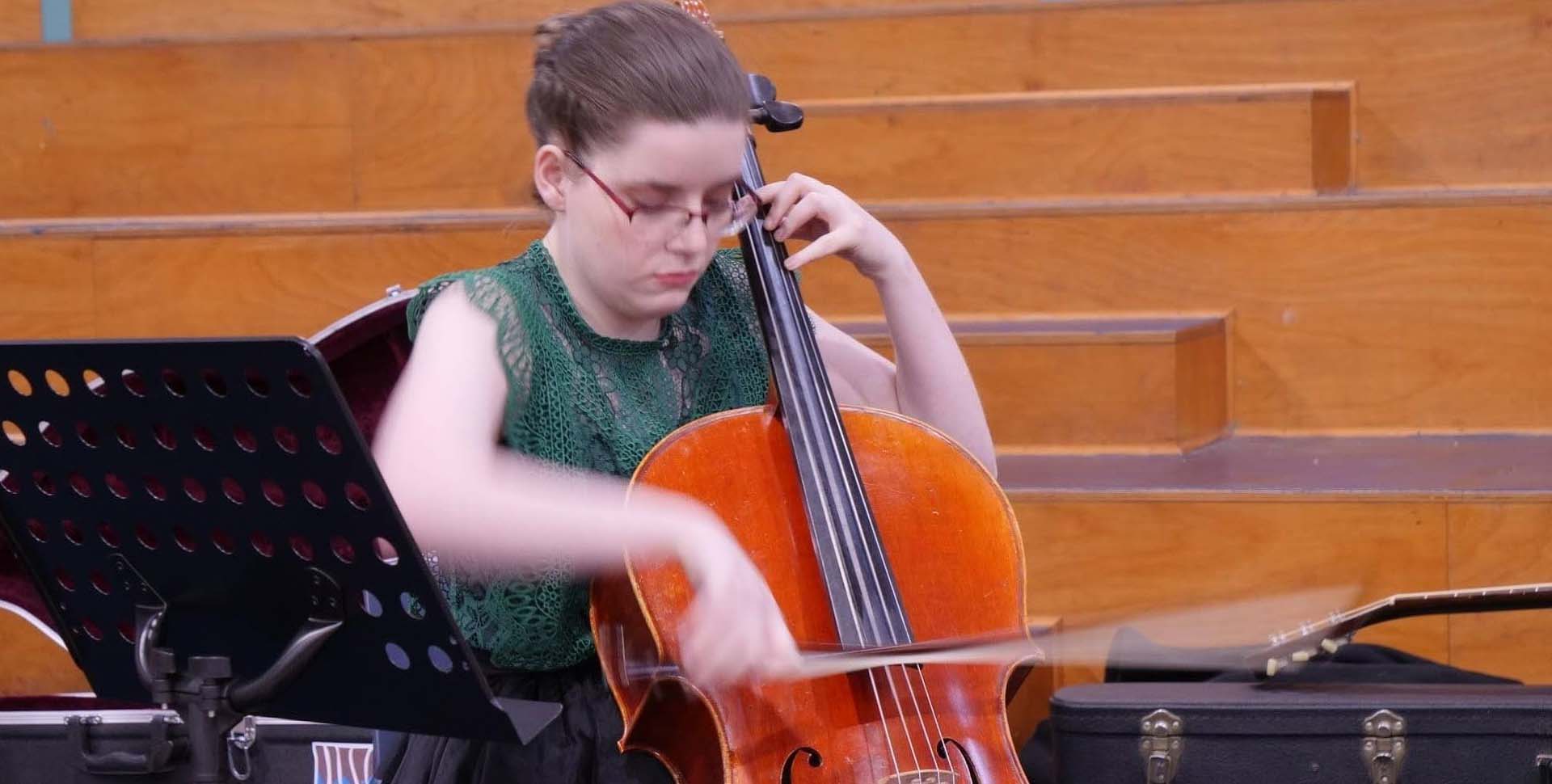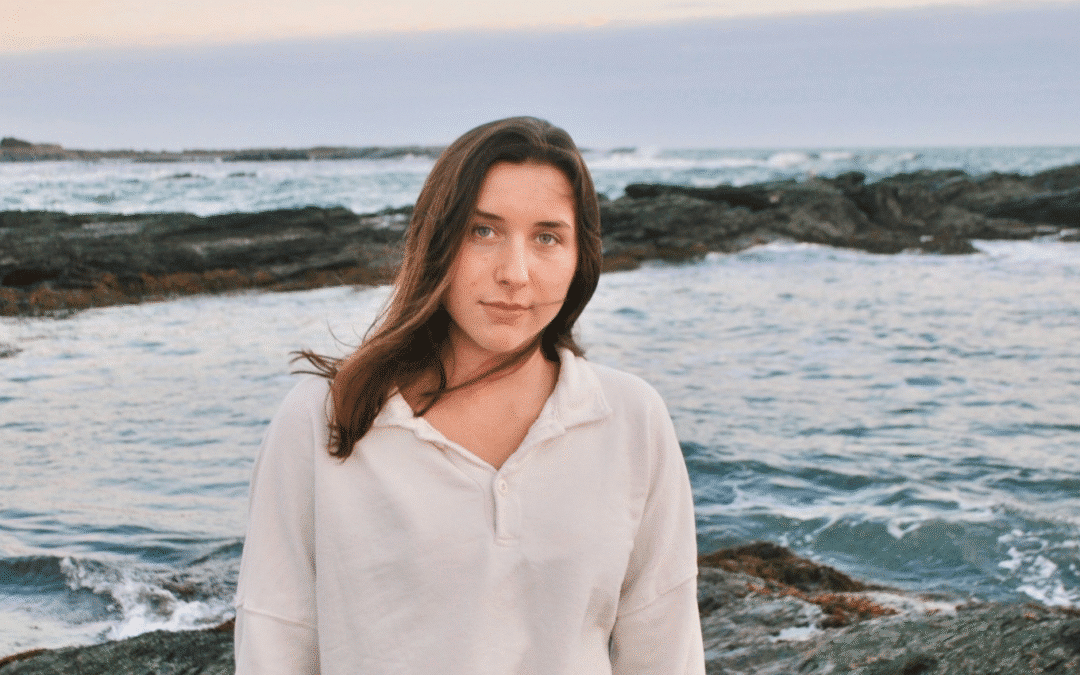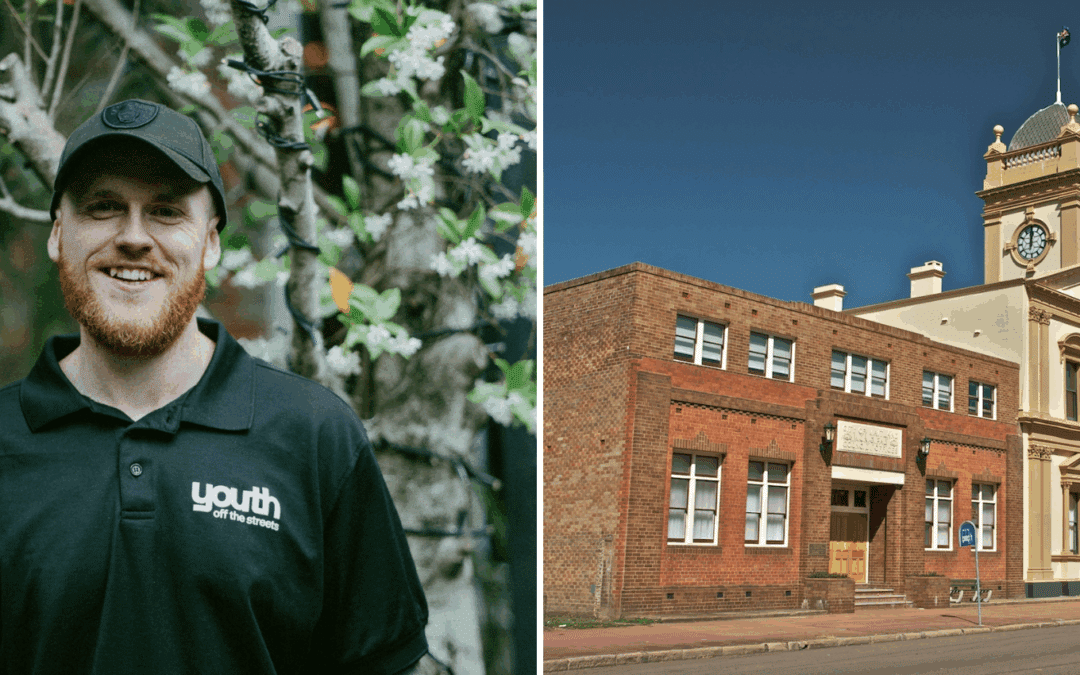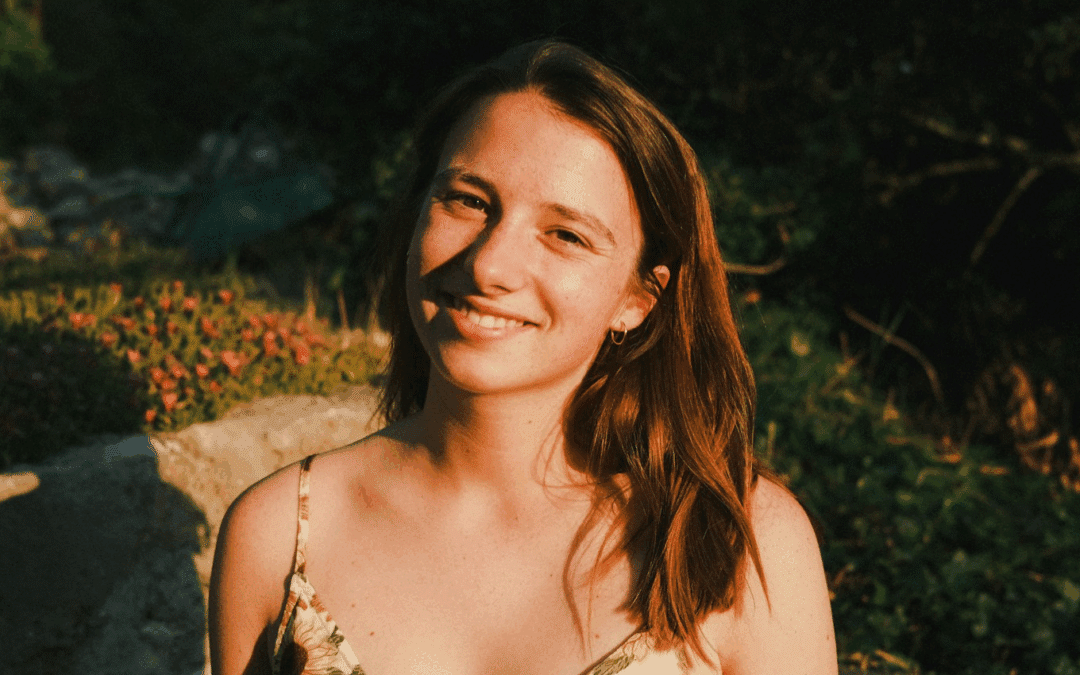As a musician and composer, the past five years have been a whirlwind for Tilly Jones.
It started when she was approached in 2016 to be the subject of a short film for the Creatability series by Screenworks.
“It was shown on ABC iView, SBS and Virgin Australia flights,” she explains. “It was also featured at the 2018 Cinema Touching Disability Film Festival in Austin, Texas.”
Tilly was born with a number of disabilities, including cerebral palsy (CP), fetal alcohol spectrum disorder (FASD), autism and attention-deficit hyperactivity disorder (ADHD).
“Everyone’s experience of CP is unique,” she explains. “I have mild CP, which affects my mobility and range of motion in my limbs, as well as my strength and muscle tone.
“I wear foot orthotics to keep my leg muscles lengthened and do daily physio routines. When I was younger, CP mainly affected my lower limbs. As I’m getting older, it affects my upper limbs, impacting my music-making ability.”
Still, Tilly finds her ‘invisible’ disabilities the most difficult to live with. |
“I am high functioning, but living as a neuro-divergent person in a neurotypical world can be challenging.
“ADHD is more than being distracted – it’s brain fog, masking, dealing with sensory issues and fighting stereotypes.”
A focus on ability
Despite her diagnoses, Tilly has achieved incredible things in her young life.
The film led to her being commissioned by the Australian Chamber Orchestra to compose music for their string quartet. After that, she spent six months studying music in France.
When she returned home to Lismore, she got involved in several more creative projects, including the Lismore Lantern parade.
Tilly was fostered by two women – Jenny and Marge, who she calls her mums – when she was a child.
“I was welcomed into the family,” she recalls. “I’m still with them today.”
They helped her overcome her disabilities through physio and therapy appointments and introduced her to music.
“When I was around three or four, my mum bought me a toy piano,” she says.
“My grandmother was visiting us from France and noticed that I was making music and suggested my mums put me in piano lessons.”
They enrolled her in lessons at the Northern Rivers Conservatorium in Lismore.
Her music skills developed from playing the piano, violin, cello, clarinet and saxophone to her next talent – composition.
“Composition is one of my main passions,” she says. “And because I play all these different instruments, it helps me compose for a range of instruments and ensembles.”
Youth Off The Streets’ National Scholarship Program
While Tilly was in Year 12, her family were trying to find ways to gain financial support for the opportunities and equipment she needed.
“My support worker found the Youth Off The Streets National Scholarship Program that supported young people with disabilities in rural areas,” she recalls.
“We thought we’d give it a shot and apply for it. In between lessons at the Northern Rivers Conservatorium, I received a phone call from Jude, the scholarships coordinator, saying that I had won a Sony Foundation Australia scholarship.
“I was blown away. I immediately called my mum, and she was so happy for me.”
Could our National Scholarship Program support you to reach your dreams? Find out more here
Since completing high school through distance education, Tilly has studied music at Southern Cross University and worked at the conservatorium.
“It’s cool to kind of come full circle, working at the conservatorium,” she says. “It’s where I started learning music 11 years ago.
“It’s pretty much my second home because they’ve given so much to me, and I’ve made so many friends. When I need accommodations, they are more than willing to help.”
Tilly believes that providing accommodations to people with disabilities, including accessible physical spaces and technology, should be the standard.
“Being inclusive means including disabled people – of all disabilities and backgrounds – in the conversation about inclusivity and society,” she says.
“For society to be more inclusive, we need de-stigmatise disability, starting as education in primary schools, high schools and universities.
“Inclusion and accessibility should be at the core of design thinking, as well as providing jobs and spaces in society for those with disabilities to maintain independence, like accessible housing, retail, parks, libraries and other public spaces.”
Once she finishes her degree, one of Tilly’s aspirations is to record and release an album.
“It’s a big goal of mine because I have all this written music,” she explains. “I want to put it out there to people in the right way.”
Tilly is always searching for ways to achieve her goals.
“I think you should look for opportunities whenever you can,” she says.
“That’s how I found the scholarship – by searching and reaching out. I think you must pursue your dreams and don’t let anyone tell you ‘no’. If you believe in something, go get it.”
Listen to Tilly’s music on Soundcloud here. Access more information about our National Scholarship Program here.



